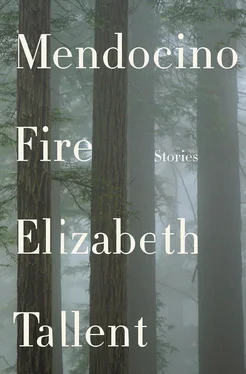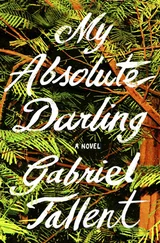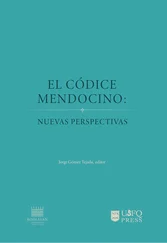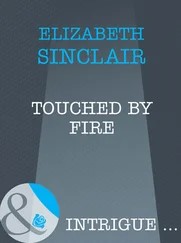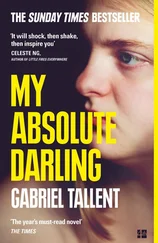Before leaving the party, I had sat for a while on his step in the stairwell. All I had to go on were the first-person narrators whose stubborn cherishing of difficult women imbued his work with generosity of spirit, but I felt betrayed. Savagely I compared the rudeness I’d witnessed with the radiance I’d hoped for. How could narrators so prodigal in their empathy originate in the brain of that withholder? The women had not trespassed in approaching: the party was meant for such encounters. Two prettier incarnations of eager me had been rebuffed, was that it? No. Or only partly. From his work I had pieced together scraps I believed were really him . At some point I had forsaken impartial immersion and begun reading to construct a writer I could love. Consider those times I’d said not His books are wonderful , but I’m in love with him . But he had never intended to tell me who he was. There was no fall from grace, not one page is diminished, not one scene or sentence, the books are as beautiful as ever , I coached myself. But the sense that something was ruined survived every attempt to reason it away.
The days passed without my glimpsing him again, and besides I was distracted by an acceptance entailing thrilling, perilous phone calls from the editor who was taking the story, whose perfectionism in regard to my prose dwarfed my own. Equally confusingly, my workshop, when my story was up, found the ending unconvincing. The ending had come in a rush so glorious that my role was secretarial, the typewriter chickchickchickchickchick-tsing -ing along, rocking the kitchen table on its uneven legs; now I couldn’t tell how good it was, and I was anxious to get back to New Mexico and realigned with instinct. A story that was going well set the table jolting, my husband said, like a three-legged dog late for supper. Home was a two-hundred-year-old adobe on a dirt road winding along the contour of a canyon wall: What had I thought would be out here, for me? At the farewell party in the twilight of the grand redwood-paneled reception room, hundreds of voices promised to stay in touch. At the room’s far end, past the caterer’s table with its slowly advancing queue, French doors stood ajar, and two butterflies dodged in, teetering over heads that didn’t notice. They weren’t swallowtails or anything glamorous, just drab small airborne slips dabbling in the party air, and my awareness linked with them, every swerve mirrored, or as it felt enacted, by the consciousness I called mine, which for the moment had more to do with them than me. After a while they pattered back out through the doors. Then there he stood, observing their waffling exit. And now it was him I couldn’t look away from. His head turned; when he believed I was going to retreat — when I, too, was aware of the social imperative to break off a stare — and I didn’t, then the nature of whatever it was that was going on between us changed, and was, unmistakably, a declaration. Triumph showered through me, at finding nerve where there had always been inhibition: I was as delighted with this new self of mine as I was with the man I was staring at. But did he want this? Because who was I? He broke the connection with a dubious glance down and away, consulting the proprieties, since non-crazy strangers did not lock each other in a transparently sexual gaze heedless of everybody around them, and he wasn’t, of course he wasn’t, sure what he was getting into. If I had been my old shy self, that hesitation would have killed my stare. At last he looked up to see whether he was still being stared at, as he was, greenly, oh shamelessly, by me, and he wondered whether something was wrong with me, but he could see mine was a sane face and that I, too, acknowledged the exposedness and hazard of not breaking off the stare, and this information flaring back and forth between us guaranteed we were no longer strangers.
We spent the night over coffee in a café on Telegraph Avenue, breaking story-length pieces off from our lives, making a slice of torte disappear in alternating forkfuls. Our waitress’s forgetfulness he explained as distraction; she had a sick child at home. How can you tell? Unicorn stamp on her left hand, he said. How a local pediatrician commemorates non-crying visits. At the next table, two sixtyish gents in identical black berets slaughtered each other’s pawns. See, I told him, the way when one leans over the board, the other leans back the exact, compensatory distance. When I recognized what I was up to, matching him detail for detail to accomplish what my old anthropology professor would have called establishing kinship— We are detail’s native speakers, and there will be no end of detail, no end to what binds us —I understood that rapport, which had always seemed to belong among the less consequential social feats, could in fact be revelatory. The most fantastic determination arose, to stay in his presence. At the same time I understood full well that I would be getting on an airplane in — I looked at my watch — five hours. He, too, looked at his watch. Our plan was simple: not to sleep together, because that would make parting terrible. We would stay talking until the last minute, and then he would drive me to the airport, stopping by my hotel first for my things. I didn’t have money for another ticket and couldn’t miss my early-morning flight.
He left it till late in the conversation to ask, “You’re, what—?”
“Twenty-four.” I stirred my coffee, not sure I should ask the reciprocal question. Forty-two or — three, my guess was, but I was bad at telling ages.
“What’s in New Mexico?”
“Beauty.” I didn’t look up from my coffee to gauge if that was too romantic; the narrators of his books were always in quest of a woman’s unedited self. “The first morning I woke up there — in the desert; we’d driven to our campsite in the dark — I thought This is it, I’m home. ”
Another thing he said across the table: “Your cover is blown, my friend. The story that got taken from the slush pile, that was yours.” The workshop instructor, a friend of my editor’s, had gone around repeating the news.
“Someone”—the moonlight-motorcycle-ride guy—“told me, ‘It’s lightning striking, the only magazine that can transform an unknown into a known.’ Not that I’m not grateful, I’m completely grateful to have been dug out of the slush pile, but what if I’m not good at the known part?”
“Comes with the territory,” he said. “Why would it be harder for you than anyone else?”
“Too awkward,” I said.
“Pshaw.”
“Too foot-in-mouth.”
“ Be the girl wonder.”
Which shut me up: I took it to mean that, instead of complaining, I should adapt. I would go on to hear similar corrections encoded in other remarks; this was only the first instance. “You’re chipper this morning, kid”—that was a warning whose franker, ruder form would have been Tone it down . “You look like something from the court of Louis Quatorze” meant I should have blow-dried my long hair straight, as usual, instead of letting its manic curliness emerge. When he would announce, of his morning’s work, “Two pages” or “Only one paragraph, but a crucial one,” I heard And what have you done? Since your famous story. What? I could be getting it all wrong, I knew, but I couldn’t not interpret.
Those first charmed early-summer days he put on his record of Glenn Gould’s Goldberg Variations, which I had never heard before, and taught me to listen for the snatches of Gould’s jubilant humming. When I was moved to tears by Pachelbel’s Canon in D, he didn’t say Where have you been? He sang Joni Mitchell’s “California” in his bathrobe while making coffee to bring to me in the downstairs bedroom. One morning, sitting up to take the cup, I asked, “Do you remember at the welcoming party, you were in the stairwell and two women came up to you? And you wouldn’t say anything?”
Читать дальше
